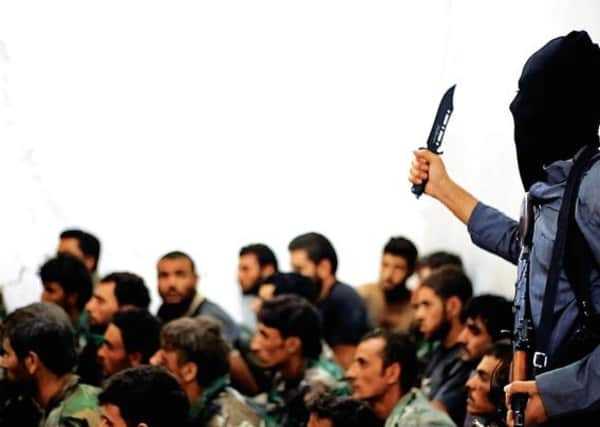US: Obama seeks allies to tackle terror


The president is meeting with his top advisers and consulting members of Congress to prepare US military options. At the same time, he is looking for allies around the world to help root out the Islamic State group that has seized large areas of territory in Syria and Iraq.
“Any successful strategy ... needs strong regional partners,” Obama said last week.
Advertisement
Hide AdAdvertisement
Hide AdIn the last year-and-a-half, Islamic State extremists have fought the Syrian army, Hezbollah and Iranian forces. They have clashed with al-Qaeda’s local affiliate, routed Iraq’s army and pushed back Kurdish peshmerga fighters. American air strikes in Iraq have recently caused somewhat of a retreat. But US military leaders say the terrorists can’t be crushed unless their sanctuaries in Syria are targeted.
While debate in the US centres on military tactics and Obama’s level of congressional and public support for action in Syria, officials are trying to come up with a co-ordinated approach to fighting the Islamic State group among a wide range of governments and militias.
Iraq is the focus of US strikes against Islamic State and is Obama’s priority. The US wants the new government under prime minister-designate Haider al-Abadi to be as inclusive as possible, bringing Sunni groups back to the government and away from the Islamic State. It is trying to get the army to improve rapidly after it fled from several battles.
The US also is likely to continue arming Iraqi Kurdish forces. All of the efforts aim to push back the extremists on the battlefield and isolate them from supportive communities. If Sunni tribes turn on the Islamic State, as with al-Qaeda in Iraq in the last decade, it could leave the group short of local recruits and safe havens.
The epicentre of the problem, Syria, is still the big question-mark for Obama. He says he will not co-operate with President Bashar al-Assad, whose government is battling Islamic State fighters. US and Syrian officials rarely, if ever, communicate any longer. However, the US needs a ground force ready to assert control in the event of strikes against the Islamic State group. That will not be American soldiers. And in Syria, there are only two real alternatives to Assad’s army and the Islamists: the moderate rebels and the Kurds.
The moderates are weak, squeezed by extremists and government forces, and may need American assistance simply to hold on. Syria’s Kurds, meanwhile, have long been ostracised by the US for their links to terrorism in neighbouring Turkey.
Having no one to fill the power void could lead Syria further down the road toward a failed state.